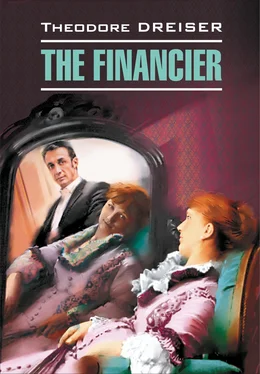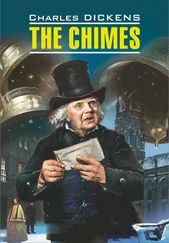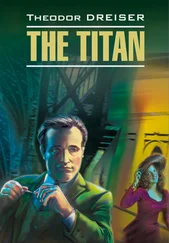The most popular local stone, a green granite was chosen; but Mr. Ellsworth promised to present it in such a way that it would be especially pleasing. Cowperwood, Sr., decided that he could afford to spent seventy-five thousand dollars – he was now worth two hundred and fifty thousand; and Frank decided that he could risk fifty, seeing that he could raise money on a mortgage. He planned at the same time to remove his office farther south on Third Street and occupy a building of his own. He knew where an option was to be had on a twentyfive-foot building, which, though old, could be given a new brownstone front and made very significant. He saw in his mind’s eye a handsome building, fitted with an immense plate-glass window; inside his hardwood fixtures visible; and over the door, or to one side of it, set in bronze letters, Cowperwood & Co. Vaguely but surely he began to see looming before him, like a fleecy tinted cloud on the horizon, his future fortune. He was to be rich, very, very rich.
During all the time that Cowperwood had been building himself up thus steadily the great war of the rebellion had been fought almost to its close. It was now October, 1864.
The capture of Mobile and the Battle of the Wilderness [81] The capture of Mobile and the Battle of the Wilderness – захват г. Мобиль (штат Алабама) и «битва в лесных дебрях» (штат Виргиния), происшедшие в 1864г., были крупными событиями в войне Севера и Юга
were fresh memories. Grant [82] Grant – Улисс Симпсон Грант (1822–1885), генерал, возглавлявший армию Севера во время Гражданской войны, впоследствии стал 18 президентом США (с 1869 по 1877)
was now before Petersburg, and the great general of the South, Lee [83] Lee – Роберт Эдвард Ли (1807–1870), самый известный генерал армии Юга
, was making that last brilliant and hopeless display of his ability as a strategist and a soldier. There had been times – as, for instance, during the long, dreary period in which the country was waiting for Vicksburg to fall, for the Army of the Potomac to prove victorious, when Pennsylvania was invaded by Lee – when stocks fell and commercial conditions were very bad generally. In times like these Cowperwood’s own manipulative ability was taxed to the utmost, and he had to watch every hour to see that his fortune was not destroyed by some unexpected and destructive piece of news.
His personal attitude toward the war, however, and aside from his patriotic feeling that the Union ought to be maintained, was that it was destructive and wasteful. He was by no means so wanting in patriotic emotion and sentiment but that he could feel that the Union [84] the Union – ( зд. ) США
, as it had now come to be, spreading its great length from the Atlantic to the Pacific and from the snows of Canada to the Gulf [85] the Gulf = the Gulf of Mexico – Мексиканский залив
, was worth while. Since his birth in 1837 he had seen the nation reach that physical growth – barring Alaska – which it now possesses. Not so much earlier than his youth Florida had been added to the Union by purchase from Spain; Mexico, after the unjust war of 1848, had ceded Texas and the territory to the West. The boundary disputes between England and the United States in the far Northwest had been finally adjusted. To a man with great social and financial imagination, these facts could not help but be significant; and if they did nothing more, they gave him a sense of the boundless commercial possibilities which existed potentially in so vast a realm. His was not the order of speculative financial enthusiasm which, in the type known as the “promoter,” sees endless possibilities for gain in every unexplored rivulet and prairie reach; but the very vastness of the country suggested possibilities which he hoped might remain undisturbed. A territory covering the length of a whole zone and between two seas, seemed to him to possess potentialities which it could not retain if the States of the South were lost.
At the same time, the freedom of the negro was not a significant point with him. He had observed that race from his boyhood with considerable interest, and had been struck with virtues and defects which seemed inherent and which plainly, to him, conditioned their experiences.
He was not at all sure, for instance, that the negroes could be made into anything much more significant than they were. At any rate, it was a long uphill struggle for them, of which many future generations would not witness the conclusion. He had no particular quarrel with the theory that they should be free; he saw no particular reason why the South should not protest vigorously against the destruction of their property and their system. It was too bad that the negroes as slaves should be abused in some instances. He felt sure that that ought to be adjusted in some way; but beyond that he could not see that there was any great ethical basis for the contentions of their sponsors [86] sponsors – ( зд. ) защитники
. The vast majority of men and women, as he could see, were not essentially above slavery, even when they had all the guarantees of a constitution formulated to prevent it. There was mental slavery, the slavery of the weak mind and the weak body. He followed the contentions of such men as Sumner, Garrison, Phillips, and Beecher [87] Sumner – Чарльз Самнер (1811–1874), Garrison – Уильям Ллойд Гаррисон (1805–1879), Phillips – Уэнделл Филипс (1811– 1884), Beecher – Генри Уорд Бичер (1813–1887), сторонники отмены рабства
, with considerable interest; but at no time could he see that the problem was a vital one for him. He did not care to be a soldier or an officer of soldiers; he had no gift for polemics; his mind was not of the disputatious order – not even in the realm of finance. He was concerned only to see what was of vast advantage to him, and to devote all his attention to that. This fratricidal war in the nation could not help him. It really delayed, he thought, the true commercial and financial adjustment of the country, and he hoped that it would soon end. He was not of those who complained bitterly of the excessive war taxes, though he knew them to be trying to many. Some of the stories of death and disaster moved him greatly; but, alas, they were among the unaccountable fortunes of life, and could not be remedied by him. So he had gone his way day by day, watching the coming in and the departing of troops, seeing the bands of dirty, disheveled, gaunt, sickly men returning from the fields and hospitals; and all he could do was to feel sorry. This war was not for him. He had taken no part in it, and he felt sure that he could only rejoice in its conclusion – not as a patriot, but as a financier. It was wasteful, pathetic, unfortunate.
The months proceeded apace. A local election intervened and there was a new city treasurer, a new assessor of taxes, and a new mayor; but Edward Malia Butler continued to have apparently the same influence as before. The Butlers and the Cowperwoods had become quite friendly. Mrs. Butler rather liked Lillian, though they were of different religious beliefs; and they went driving or shopping together, the younger woman a little critical and ashamed of the elder because of her poor grammar, her Irish accent, her plebeian tastes – as though the Wiggins had not been as plebeian as any. On the other hand the old lady, as she was compelled to admit, was good-natured and good-hearted. She loved to give, since she had plenty, and sent presents here and there to Lillian, the children, and others. “Now youse must come over and take dinner with us” – the Butlers had arrived at the evening-dinner period – or “Youse must come drive with me to-morrow.”
Читать дальше












